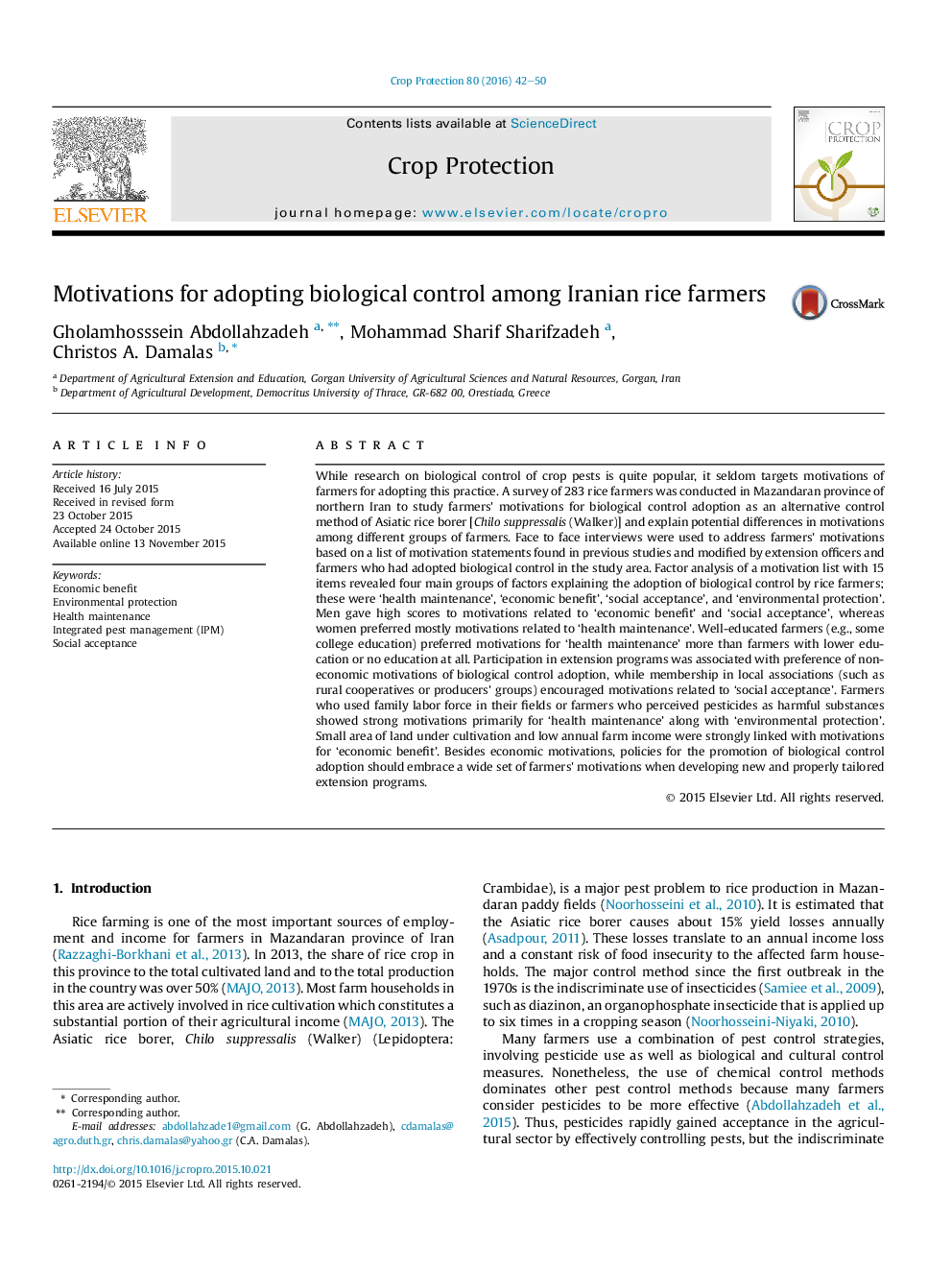| کد مقاله | کد نشریه | سال انتشار | مقاله انگلیسی | نسخه تمام متن |
|---|---|---|---|---|
| 4505568 | 1624307 | 2016 | 9 صفحه PDF | دانلود رایگان |
• Farmers' motivations for the adoption of biological control were surveyed.
• Motivations of biological control adoption were grouped in four categories.
• Well-educated farmers preferred motivations primarily for ‘health maintenance’.
• Negative perceptions of pesticides boosted motivations for ‘health maintenance’.
• A wide set of motivations should be taken into account for promoting adoption.
While research on biological control of crop pests is quite popular, it seldom targets motivations of farmers for adopting this practice. A survey of 283 rice farmers was conducted in Mazandaran province of northern Iran to study farmers' motivations for biological control adoption as an alternative control method of Asiatic rice borer [Chilo suppressalis (Walker)] and explain potential differences in motivations among different groups of farmers. Face to face interviews were used to address farmers' motivations based on a list of motivation statements found in previous studies and modified by extension officers and farmers who had adopted biological control in the study area. Factor analysis of a motivation list with 15 items revealed four main groups of factors explaining the adoption of biological control by rice farmers; these were ‘health maintenance’, ‘economic benefit’, ‘social acceptance’, and ‘environmental protection’. Men gave high scores to motivations related to ‘economic benefit’ and ‘social acceptance’, whereas women preferred mostly motivations related to ‘health maintenance’. Well-educated farmers (e.g., some college education) preferred motivations for ‘health maintenance’ more than farmers with lower education or no education at all. Participation in extension programs was associated with preference of non-economic motivations of biological control adoption, while membership in local associations (such as rural cooperatives or producers' groups) encouraged motivations related to ‘social acceptance’. Farmers who used family labor force in their fields or farmers who perceived pesticides as harmful substances showed strong motivations primarily for ‘health maintenance’ along with ‘environmental protection’. Small area of land under cultivation and low annual farm income were strongly linked with motivations for ‘economic benefit’. Besides economic motivations, policies for the promotion of biological control adoption should embrace a wide set of farmers' motivations when developing new and properly tailored extension programs.
Journal: Crop Protection - Volume 80, February 2016, Pages 42–50
